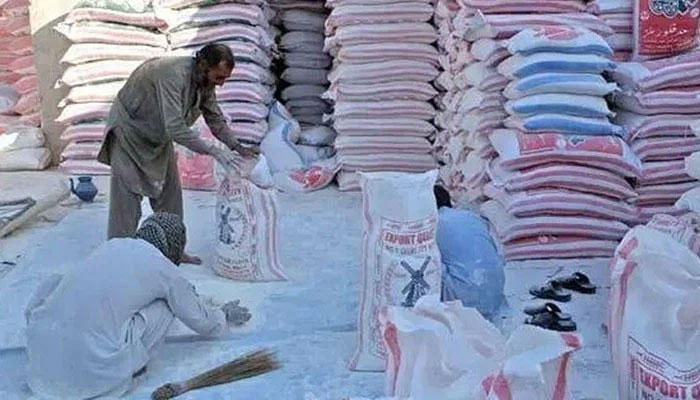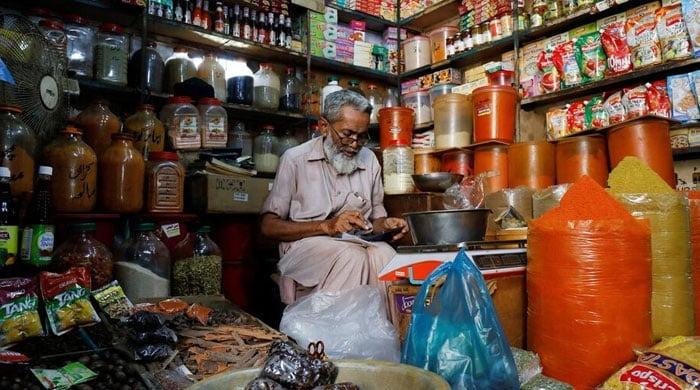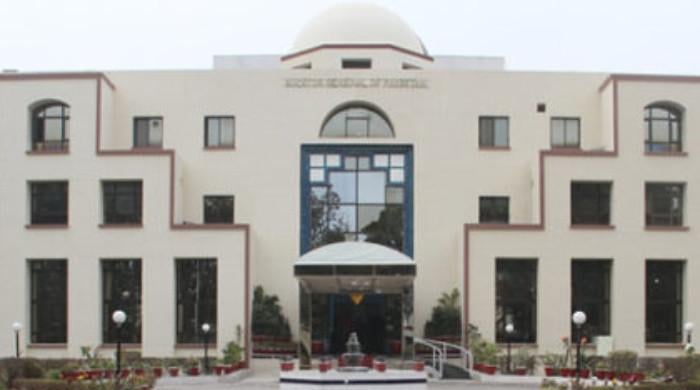Another flour crisis looming in Punjab
Food department in most Punjab districts have run out of wheat stock; new crop yield still four to five months away
November 21, 2021

- Another wheat flour crisis is in the offing in Punjab.
- Flour mill owners are shutting down mills due to rising cost of rent because of procurement of government wheat from other districts.
- Agricultural experts believe it is not possible to overcome flour crisis in country without increasing acreage and subsidizing farmers.
FAISALABAD: Another wheat flour crisis is in the offing in Punjab as the food department in most districts of the province have run out of the commodity’s stock and the new crop yield is still four to five months away.
In addition to the reduction in the supply of wheat to flour mills by the government and the reduction in grinding charges, the owners of flour mills have been shutting down their mills indefinitely due to the rising cost of rent because of procurement of government wheat from other districts, The News reported.
It should be noted that the average production of wheat in Pakistan has been limited to 30-33 maund per acre for the last three decades, while in India and other countries, this rate is more than 60-70 maund per acre.
Agricultural experts believe that it is not possible to overcome the flour crisis in the country without increasing acreage and subsidizing farmers.
In addition to this, if the government wants the welfare of farmers and the common man, the food department should be abolished and a regulatory body should be set up to allow the flour mills to buy and store wheat directly from the farmers, the publication reported. In this way, corruption of billions of rupees every year in the name of wheat procurement will be curbed.
It may be recalled that the Punjab government borrows Rs200-250 billion annually from commercial banks for the purchase of wheat, on which people have to bear the burden of paying interest. Besides this, Rs30-40 billion are paid separately in form of a subsidy.
Apart from this, there is corruption in the procurement of sacks and other expenses incurred by the Food Department for the storage of wheat. In this regard, the United Nations Food and Agriculture Organisation, the World Bank and the Asian Development Bank have been proposing to the government for many years that the Food and Market Committees be abolished as they are a burden on the national exchequer.
Therefore, like other countries in the world, the government in Pakistan should purchase two to three million tons of wheat as per the strategic need and allow the rest of the production to be purchased directly from the flour mills. In this regard, loans should be given to flour mills at low-interest rates so that they can build warehouses for the storage of purchased wheat.
The SBP has suggested to the government that commercial banks could provide loans at a 6% interest rate to flour mills to make storage centres for wheat.
Chaudhry Shafiq Anjum, president of Faisalabad Flour Mills Association, said that by allowing flour mills to purchase wheat directly from farmers, the government could save Rs300 billion annually. He said that even the records of wheat procured by flour mills is under the control of the government. According to Chaudhry Shafiq, 60% of flour mills in the country have already closed due to inconsistency in government policies. He said if the government allows flour mills to buy wheat from the open market, farmers could get good prices for their crops.
In addition, flour mills can earn foreign exchange by buying cheap wheat from Russia’s neighbouring states and export it to Afghanistan, Bangladesh, Iran, Sri Lanka, Nepal, Maldives and the Middle East because these countries do not produce wheat.
Shafiq said Pakistan’s wheat is considered to be the best in the world and if the government pays attention, there are so many flour mills in Pakistan that flour can be exported all over Asia, including to China. He said the reason for the current crisis is that the Food Department is not providing an adequate quantity of wheat to flour mills and at present no flour mill is operating for more than a few hours a day. He said that by implementing a quota system earlier, 14 sacks of wheat per body were being given to each flour mill which has been reduced to 12 sacks per body. Similarly, the grinding charges have been reduced from Rs6 per kg to Rs4, although the grinding charges have gone up to Rs8. Similarly, the earlier wheat threshing ratio is 60:40 which has been changed to 65:35.
In addition to this, due to the depletion of wheat stock in Faisalabad, flour mills are being forced to pick the wheat from the warehouses of Jhang and Toba Tek Singh due to which the rent per sack has increased from Rs35 to Rs135. He said that in the talks held two months ago, the government had promised to resolve these issues but so far no progress has been made. He said if the government does not respond positively in the next one week, all flour mills across Punjab would be closed indefinitely and there would be protests.











